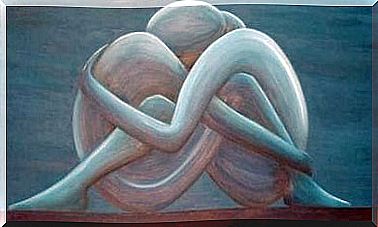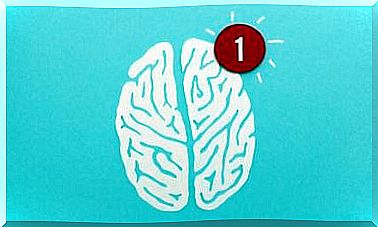The Invitation Technique: How We Allow Ourselves To Be Offended

Have you heard of the invitation technique?
Psychology always intends to give the patient the opportunity to take the reins in his own life and not let emotions or external situations take all the control. The idea is to encourage unconditional acceptance: of oneself, others and life in general. In this way, everything that happens to us affects us in the right amount: no more, no less.
It’s not about compliance, as we might think. Being conformist, as the name suggests, links us firmly in our comfort zone. In what we can control. But it does not teach us acceptance. We are still afraid to open our wings and discover the magic that life has in store for us.
We do not want conformists. We like passionate people who jump with their heads first into life. People with goals, desires and dreams to fulfill. These people are emotionally mature. They can regulate their emotions and control their way of interpreting and perceiving the world. They can accept defeat, failure and criticism as a normal part of life.
How many times have we become angry because someone told us something ugly or treated us unfairly? How many times have we blamed others for our feelings? We have all made this mistake. But our feelings are only ours. When we feel emotionally unwell, it is because we have decided to be that way.
You, not others, make yourself feel offended
It is true that no one likes to have their shortcomings highlighted or to be reminded of their mistakes. Nobody likes criticism, in general. People prefer flattery and praise because it makes us feel accepted. Approval gives us great joy. In fact, it stimulates the brain’s reward system so much that we may become dependent on approval. Criticism and rejection can make us feel anxious, depressed or angry.
Of course, we do not want to feel these emotions. We would rather avoid them at all costs. The problem is that the way we choose to avoid them is usually not the best.

When we hear a negative comment about ourselves, the first thing we usually do is be defensive. We try to justify ourselves, give explanations or retaliate against the person who gives it.
Why do we do this? Because we are offended, not because of what they said, but because we believe that what this person has said about us is the truth. We can deny their criticism, but we confirm it deep down.
Let’s say we believe in the criticism of others. We believe in them. We make their critique our own, and integrate it into our worldview as a truth, so that it can change the way we think. That decision means that we allow ourselves to be puppets, controlled by the opinions of others.
Therefore, there are no others who insult us. Those around us have the right to express their opinions. On the contrary, we ourselves are responsible for grasping these opinions and believing in them.
Do you not think it is interesting that this does not happen with praise so often? We do not usually believe in compliments in the same way we do in criticism. But if someone tells us something negative, we immediately believe it.
The invitation technique: do you accept?
The invitation technique is used in therapy to demonstrate everything above to the patient. The Buddha said, “If anyone gives you a gift and you deny it, to whom does it belong?” Of course, it is still the person who will give us the gift. Well, the same thing happens with criticism.
Insults, criticism and toxic comments are like gifts: If you accept them, you accept them; If you do not accept them, the one who offends you will keep them.

If there are people who decide to waste their energy on us by being negative, it’s their problem. We do not have to accept their insults. Therefore, if we do, that is our problem. It is useless to try to change another person’s opinion. It will probably just be a waste of energy.
With the invitation technique, the therapist invites the patient to feel a certain way. For example, they may use this technique with a wrong, toxic person or negative interaction. Psychologists use this technique for patients who come to them with this type of complaint or when others have made them feel unhappy.
The invitation technique, step by step
- The therapist offers a card, as an invitation, in which the following sentence is written: “I, your (mother, boyfriend, colleague, etc.) invite you to feel (useless, ugly, fat, etc.). Do you accept the invitation? ”
- The next stop on the invitation technique is that the patient writes that he does not accept feeling this way since he does not think it defines him, but that he understands the other person’s point of view.
- In this way, the patient learns to accept himself unconditionally, while at the same time accepting the opinions of others and not trying to change them. The most important thing is that he learns not to be offended by believing in things that do not belong to him.
This acceptance frees us from the burden of trying to please everyone, something we can never really do. The invitation technique must be practiced mentally as many times as necessary, every time we come across someone who judges us negatively. With practice, we will be offended less and less, and even learn to use criticism in our favor.









